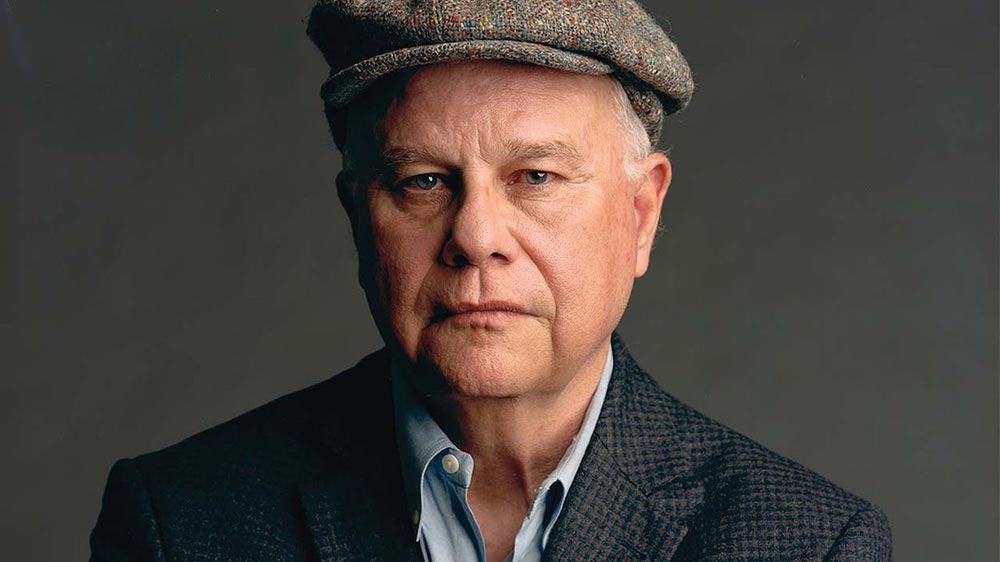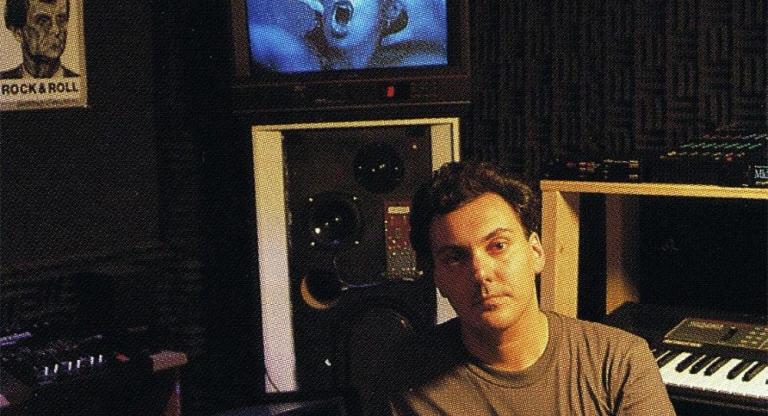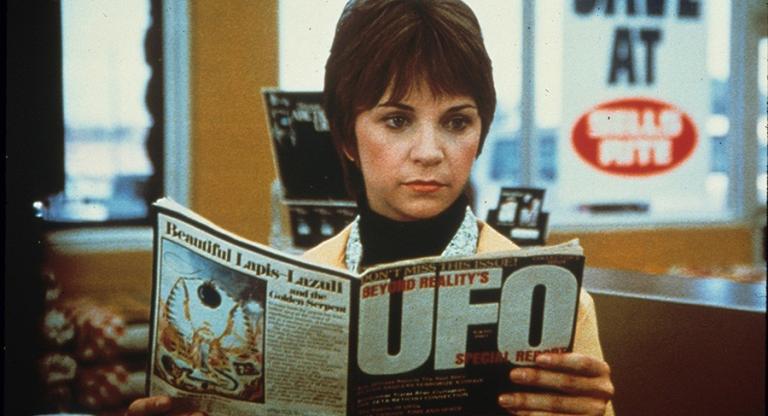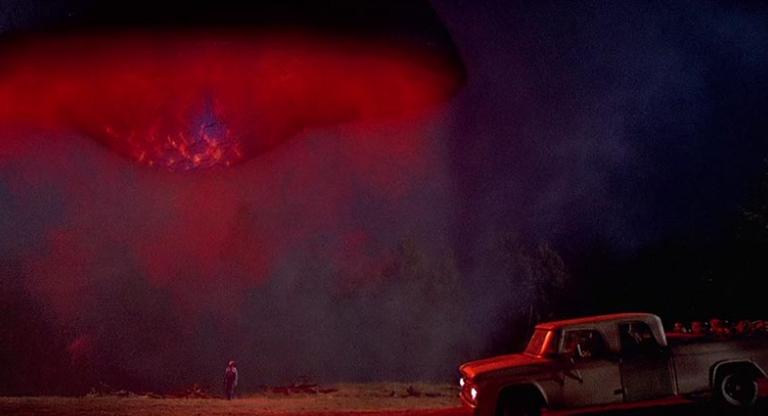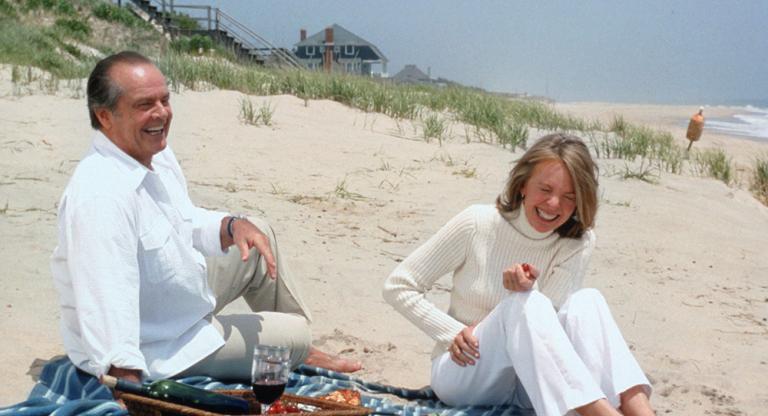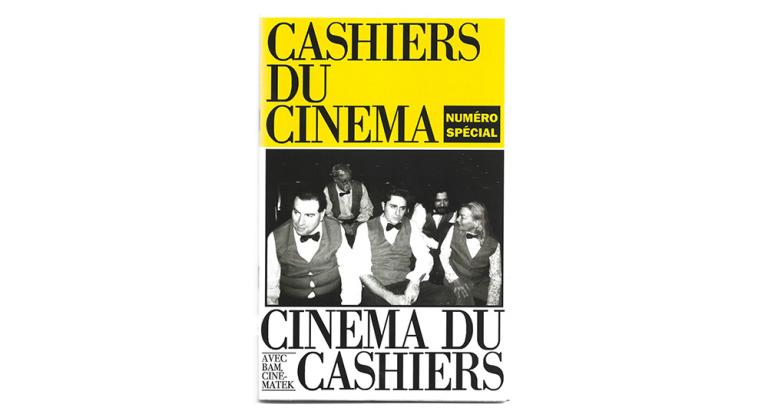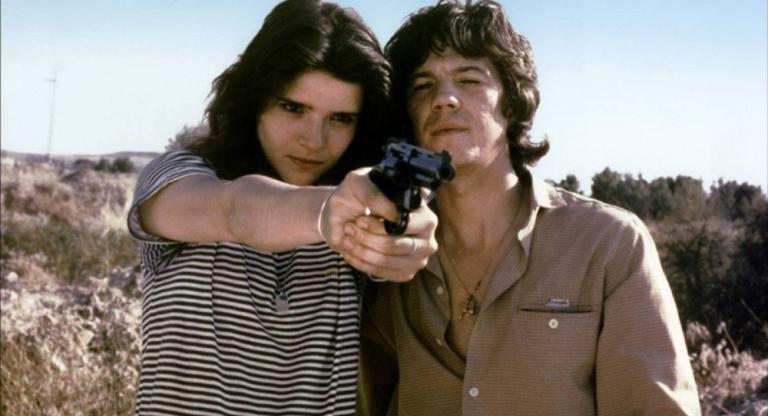Iconic author and screenwriter Whitley Strieber discloses close encounters with Kenneth Anger, George Kuchar, Christopher Walken—and the Visitors
Whitley Strieber is a man of mystery. I have known and worked with him for more than a dozen years, part of that time as his publisher and other times as a friend, interlocutor, and fellow writer. Like many people, I have understood Whitley as an erudite, searching, and accomplished author who introduced the alien abduction thesis into mainstream culture through his bestselling 1987 memoir Communion and its 1989 film adaptation starring Christopher Walken. Other contemporary classics, also known for their screen versions, include his novels The Hunger (1981) and The Wolfen (1978).
But there is a different Whitley. One that the public—and I—never knew.
In this conversation for Screen Slate’s “Watch the Skies” series at Anthology Film Archives, Whitley reveals himself as a consummate and variegated figure of cinema—he’s been called an “underground filmmaker” himself—who attended the London School of Film Technique in the late sixties, crossed paths with Kenneth Anger and Jonas Mekas, and collaborated with George Kuchar, one of whose films featuring Whitley, Secrets of the Shadow World (1999), is part of the program at Anthology. Kuchar even shot a film—still unreleased—at Whitley’s foreboding cabin featured in Communion.
The author prepped Walken for his starring role in Communion, for which Whitley also wrote the screenplay, relating his repeat encounters with terrifying, possibly extraterrestrial “visitors” at his wooded former home in New York’s Hudson Valley.
I spoke with Whitley this month while he was visiting London—a city where, once upon a time, he just might have appeared, uncredited and previously unknown, in Kenneth Anger’s classic short Invocation of My Demon Brother (1969).
I am introducing screenings of both Communion (November 12) and Close Encounters of the Third Kind (November 13), which features another character, Claude Lacombe (played by François Truffaut), inspired by a friend and colleague, the computer scientist and UFO theorist Jacques Vallée, whose work Whitley and I also discuss.
At both appearances, I will be signing copies of my new book, Uncertain Places: Essays on Occult and Outsider Experiences.
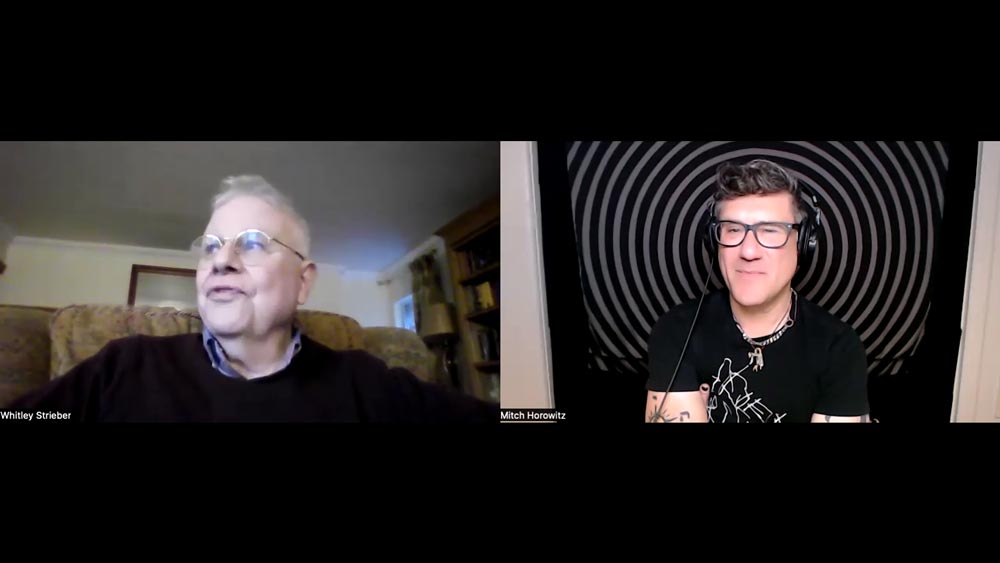
Mitch Horowitz: I'm curious about your time as a student at the London School of Film Technique. Some early bios actually describe you as a one-time “underground filmmaker.” What's your relationship to that term?
Whitley Strieber: Well, as far as underground filmmaking goes, there wasn't so much underground filmmaking at LFS. I knew George and Mike Kuchar, who were notable underground filmmakers. And at the University of Texas, I made a few films—underground films. Then I spent a year at the London School of Film Technique learning how to actually make movies. And then came back to New York and became involved with the Anthology Film Archives, not so much as a filmmaker but as a participant. My wife, Anne, and I were very keenly interested in it. That was when we met George and Mike Kuchar and got to know some of the other people in the area. It was definitely quite interesting. And I may have been in—I’ve never been absolutely sure—Invocation of My Demon Brother by Kenneth Anger. There's someone that looks like me. I was at a film shoot that he had going on in London but I didn't realize I was on camera. So, I've never been sure.
MH: Whitley, you're upending my world because Invocation of My Demon Brother is one of my favorite short films. I had no idea until this instant that you were on the set and involved in it.
WS: Well, I was on a set where he was filming; I don't even know if it was that. It sort of seems familiar, but I can't say. I think he made it mostly in San Francisco. So, I've looked into this fairly deeply, because there's one brief scene where there's a young man who looks a lot like me. And I just can't understand it, because I don't think it's me. But in any case, I was on a set here when he was filming something in London. I've never been sure. Invocation of My Demon Brother is a really interesting movie, too, I must say.
MH: It's wonderful. And Mick Jagger, of course, wrote the score. What was your relationship with Anthology Film Archives back in the day?
WS: We gave it support and we went to a lot of the films and we knew Jonas Mekas vaguely, like most of the fans did. That was all.
MH: This is a homecoming of sorts, because at Anthology Film Archives, we're screening George Kuchar’s Secrets of the Shadow World, in which you appear. How did you become connected with Kuchar?
WS: We met at Anthology Film Archives. We were at a George Kuchar festival. There were a lot of underground films being made. Underground film was a huge fad for a while. Anne and I got to talking with George and we became friends. He came out to the cabin. There's a film he made at the cabin, in fact, that I have a copy of.
MH: Was that released?
WS: No, no, he never did. At that point in his life, he wasn't really releasing his films anymore. After he passed away [in 2011], I guess I could have put it up on my website or something, but I didn't do that because I wanted to respect his wishes. It might be there, but it’s there in a way just to store it, not to publish it. [Portions of the footage appear in Kuchar’s Tales of the Twilight Typist (1994). –Ed.]
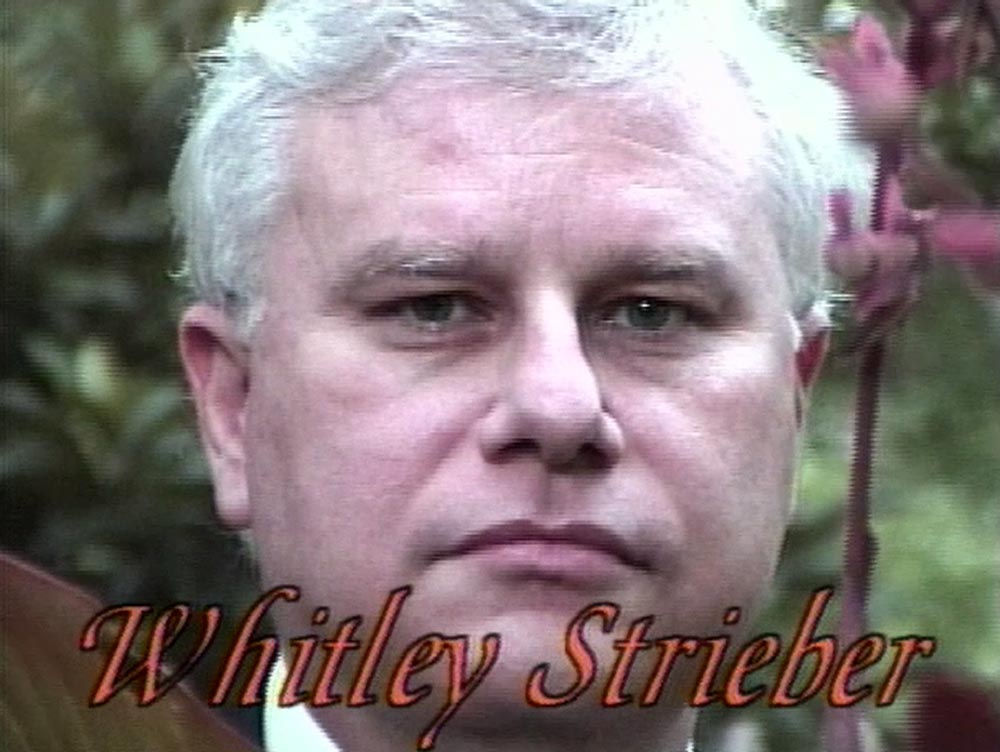
MH: We’re screening Communion, of course. What was your process in terms of translating Communion from a literary memoir into a screenplay? How do you adapt this first-person experience, this deeply intimate experience?
WS: Well, of course, that's one of the very simplest questions in filmmaking and can easily be answered with three words. Unfortunately, not by me. Largely, it's just guesswork. I tried to make the script make the same kind of sense that the book did and that the experience had. They used my script in bits and pieces, not my whole script at all. Probably some of the big scenes in the film are from my script but not all of them by any means. I think that the process is very individual and very visceral. At least it was for me. When I sat down, I thought to myself, “I'm gonna write this script.” I thought, “Well, now what do you do?” The answer was, you just start at the beginning and you write it all down in a treatment. And then you build from that into a series of vignettes. In effect, I turned the big story into a series of short stories and then made them flow together in acts so that it became a screenplay, something you could film and that would actually work on the screen. That was the process.
MH: What were the three words you referenced earlier? What are those three words?
WS: There's no way.
MH: There's no way.
WS: How many films or biofilms that had been made in Hollywood were written by the autobiographer? I can't think of one other, frankly, not that comes immediately to mind. I think it's essentially impossible. I don't think you can do it. But I did. I did it. I came out of myself. I became someone else. When I was writing the screenplay, it was not Whitley. It was a screenwriter who was trying to portray Whitley. And a different person; I literally felt like a different person while I was working on it. I had to.
MH: Were there dramatic departures that you had to make for the purposes of the medium while you were working on the screenplay?
WS: No, that I would not do. Because the very nature of the situation was that you had to be as true to the story as possible. Now, that said, the changes that were made on the screen and in the production process all have to do essentially with the way I reacted and the way the visitors acted and looked and what it was like with them. But the fear comes through anyway. And it was, of course, a tremendously frightening experience. And that comes through. It's very clear in the film that he’s really, really scared and strung out afterwards.
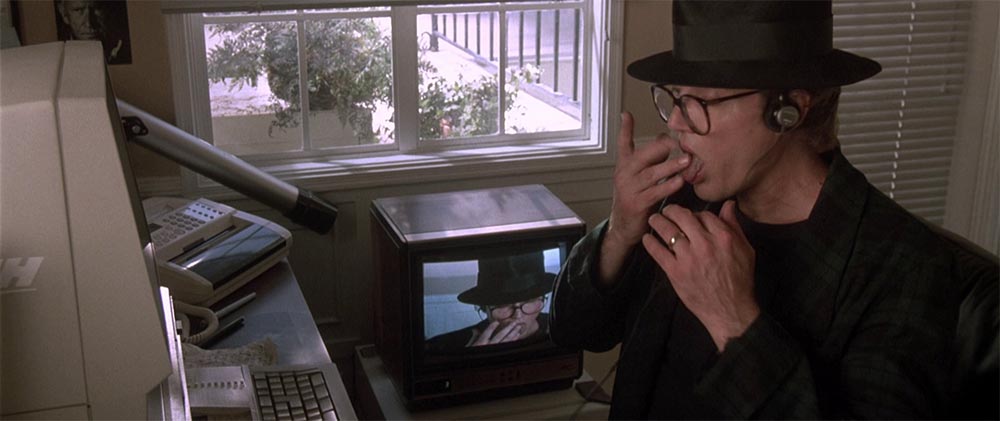
MH: So, the script underwent considerable changes during the production process from what you had written?
WS: A significant number, I would say. I wouldn't say they changed it considerably. There's one scene in it— in order to make a film more dramatic and more intense, I fire off the shotgun in the house in the movie. If I had fired off the shotgun in the past, in real life, there would have been somebody tossed right out of that house pronto, and it would have been me. But the intensity of the conflict between us about that shotgun was visceral in the film and very realistic. Anne didn't want that shotgun in the house, she didn't want it anywhere near her little boy, and she did not want me prowling around with the darn thing in the night. And you can understand that—her husband’s crazy anyway and now he's got a big shotgun and he’s prowling around in the night. That's not gonna work.
MH: Well, you had the shotgun in the house already. For safety purposes, I presume.
WS: I'm talking about before the communion experience; after the communion experience, I didn't prowl around with it anymore. I encountered these weird beings and that was the end of the guns for me. There was no way I was going to show them a gun. I thought that a surefire way to have something very odd happen to you that's not good is to show these people a gun. Because here they are flying around in flying saucers and whatever they're doing, and I'm going to be standing there with a gun? I don't think so. But before that, when I was just scared and didn't know what was going on, is when the gun stuff happened. . . . I bought the gun the summer before this happened. That was when I became so frightened and so paranoid. I began to have splitting headaches every afternoon. I now know that when you suppress things, when you suppress memories, you can get a headache. I saw that happen in my cabin. The scientist John Gliedman was there one time when we were sitting in the stone circle where I believe the experience happened. I had this stone circle built so we could meditate there. And suddenly, this is during the day, during the afternoon, this extraordinary shaft of golden light came down from above. We all saw it, it was perfectly clear. There were ten people sitting around that circle; even his wife, Margot Adler saw it. He could not see it. But he did see it. It's just that it would have shattered his worldview because his worldview was that anything but what I thought happened to me must have been what happened, because what I thought happened to me was impossible. Therefore, he could not afford to see that light. And he developed, as we went back to the house, an unbelievable headache. And he was almost incapacitated by it for the rest of the day. And I realize now looking back that I was having a headache like that every afternoon in the summer. At the same time, I was becoming incredibly paranoid, building up all of these alarm systems in the house, buying guns, stalking around at night with the guns in my hands—they [the visitors] were there then and I just wouldn't face them. I think, frankly, that's why they beat me up in December of 1985. Because there seemed to be no other way to wake me up. They beat me up to wake me up.
MH: Were you involved in the Gurdjieff work at this time?
WS: Not as heavily as I had been. Two years before, in 1983, our situation changed. In 1979 we moved to Connecticut. By 1983, we were back and we were very involved in the Gurdjieff Foundation. I've forgotten exactly what the circumstances were, but by 1985 we were not going to regular group meetings. But I was still very involved in the Gurdjieff work. I've been involved in it continuously since 1969. And it was really important because the grammar of my whole relationship, the underlying structure of it, comes out of my understanding of Mr. Gurdjieff’s ideas and how they work; not his cosmology at all, which I think is fairly puerile. But the inner presence and the establishment of the inner, of the attention, and the use of the attention is critical to engaging with and understanding the visitors. It's absolutely critical. And I would not have had that if I hadn't had the Gurdjieff work. If I hadn't had the Gurdjieff work, I don’t think they would even have bothered with me. They knew that they could get into a very deep relationship with me because of that. And they have—it’s worked well. Although I've been awfully noisy, screaming and yelling the whole time.
MH: Getting back to the film adaptation of Communion, how involved were you during production? Were you involved with casting? Did you prep Christopher Walken in any way?
WS: Yeah, I did prep Christopher Walken. I was involved with the casting in the sense that I wanted Dan Ackroyd to play me. And the next thing I knew it was Christopher Walken playing me. And, you know, I wasn't very familiar with the sinister side of Hollywood at the time. But I found out later that the director had told—so the director wouldn't get cast in a bad light in Ackroyd’s eyes—had told Akroyd that I didn't want him, and that I had chosen Walken. But actually, it was him who chose Walken. And so, Ackroyd’s never talked to me again. And he probably never will. Neither has Walken, either, but that's another story.
MH: What did you think of Walken’s performance?
WS: I think his use of that camera on himself continually was weird and off-putting. He meant it to convey the idea that I was constantly trying to get evidence. It looked like he was portraying me as a sort of over-the top-narcissist. And that wasn't his intention, I don't think. So that was a failure. And I had suggested to him that he not do it. But he's a very interesting actor. And I think that the portrayal of me, the sense of desperation and confusion, is well done. And also, I have to say Lindsay Crouse’s portrayal of Anne is very well done, too—of her down-to-earth determination to keep the family going—that comes across very well.
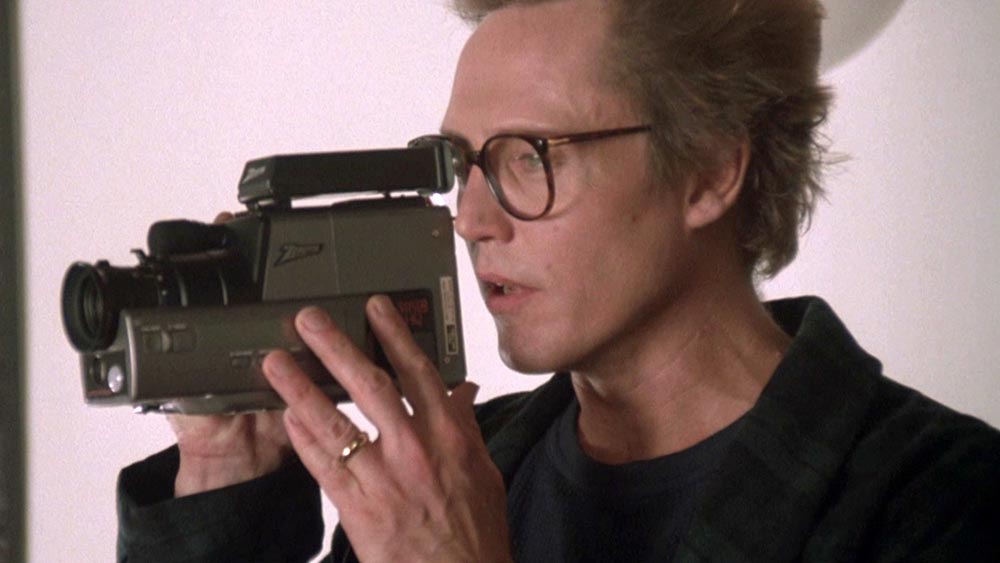
MH: Your response anticipates my next question, which is that one notices many cameras, TVs, recording devices in the film. And I wondered if that emerged from your own fascination with recording things—or was that just something that got added during the production process or via Walken’s choices?
WS: Well, as you may understand, I've been obsessed with the idea of recording the visitors ever since this happened. When I realized that they were real, the first thing I did was start looking into cameras that worked in very low-light conditions, which were fairly rare at the time and incredibly expensive. But then later, they became more common. And now my house is filled with cameras. I have two different systems in it, because the visitors— In fact, I always know when someone's gonna show up. The reason is that the cameras turn off. So, when I realized this was happening, I bought cameras that have an identifying warning light on them when they turn off. Most of them have a warning light on them when they're on so people know they're being filmed. But I now have some where that light will now blink when they’re off. And as soon as the light starts blinking, for no reason, and the internet is still working, I know they're around. And they don't want to be seen by the camera. They can do things to your head that make you unable to see them. But that doesn't work with a camera because you can't hypnotize a camera. So, they turn the cameras off, and they come around fairly frequently, actually. And in fact, just recently that happened—about six weeks ago. I don't know what happened during the experience. I rarely do. But yeah, the camera has been a very big part of my life ever since this started happening.
MH: With more than 30 years having passed, how do you feel overall about how the film turned out?
WS: It's a credible effort. I think it would have been better if they'd had more money, but the money ran out and there were all kinds of chicanery going on. And a typical independent film: all kinds of people ghosting around money, flying from one country to another and then disappearing entirely—that sort of thing. And so, the special effects are very wanting; I think that's not the special effects artists’ fault. It's nobody's fault except the money guys who also never paid me for my novel. They never paid me for the underlying material. They shined me on and shined me on and then took everything into bankruptcy, and I never got paid. They don't even actually own the film rights at all; I own them. But the film is still sitting out there on DVD and on streaming and on Amazon. Whoever is doing that doesn't actually own the rights to do that.
MH: On a different tack, when I posted news of our interview on social media, unsurprisingly I received many comments from people who spoke of being very deeply touched by the book at a young age; it made them feel understood. Why is that?
WS: Because the book is about being isolated in the face of something you cannot understand and that the world around you will not accept. That is also the definition of being a teenager. So that's why it is such a popular book among young people. It has a very young audience. I am by far the oldest fan of Communion, I think; well, that's not true, there are some older people because, you know, during the ’60s, ’70s, and into the late ’80s, there were a lot of people being abducted. And those people are now getting older. But, you know, you have that happen to you, and you come across Communion, and you stay with it. This becomes your lifeboat. And a lot of them are on my website for that reason, because they had this experience. And then you have the government lying even now about UFOs; they just can't stop. And they won't even discuss the abductions except to sneer at them. And boy, I mean, it's a powerful, real experience. I don't know what the hell does it, I don't know who they are. But I'm telling you right now, the people who have this experience are very loyal to the book and to the whole process of being together as best they can. And understandably so. They're so isolated.
MH: As you see it, how has Communion affected the depiction of, we'll say, ET phenomena in film and culture in general?
WS: In culture, the effect of Communion has been huge. Communion is the beginning of contact, like it or not. Over time, if contact actually emerges into our world in some way, it will be looked upon as the first step. And that is the truth. So culturally, I think it's been a tremendous success. In the media, first of all, there's not a lot of awareness of the book and of its meaning among film executives and TV executives. I know this because I've talked to many of them, of course. And generally, they're polite to me but actually contemptuous of me. That would be my general impression of most of them. They do not understand the experience. They've never read a thing about it. And so, the result is that most of the media approaches to this, the fictional ones, have been quite clichéd and lacking in nuance. Either it's good aliens or bad aliens. And there have been a lot of horror movies and so forth. And it hasn't really worked all that well because of a basic lack of a belief in the importance of the subject and, therefore, a lack of willingness to study its depths and its nuances.
MH: Again, you've anticipated my next question, which is, what themes do you feel are missing from UFO-oriented screen treatments today?
WS: What's missing is the ambiguity of the emotional response to a close-encounter experience. And that is a very complicated question. Because time and again, you'll find people who tell you the most horrifying stories. I know one very well, who's in my family, who had the most ghastly thing done to them. And this person wants desperately to meet the visitors again. And I said, “You were nearly killed. What do you want to do it again for?” He said, “I miss them.” And that is again and again the response. And that is not present, that conflict is simply not present in the media treatments at all. There's never been anything really nuanced done about this subject. Because it's basically considered exploitation, you know, a horror film or a science-fiction film or something silly—and not worth looking at deeply. You know, there are a lot of people, there are writers and filmmakers, like Quentin Tarantino, who I've always thought could make a remarkable movie about this subject if he ever tackled it; it would have all of the violence, the strangeness, the humor, and the humanity that the actual experience has, because he can do that.
MH: I wonder if you see any exceptions to that state of affairs, is there a movie or a screen treatment of UFO phenomena that you think adequately captures the experience?
WS: Well, you know, The Man Who Fell To Earth [1976], the David Bowie movie, has got a lot of that in it. It has the sense of desperation that comes with the visitors—because there's something very desperate about the visitors. There is an urgency and a desperation about them that you feel when you're with them. And that's communicated beautifully in that movie. Also, the strangeness and the sense of need and the vulnerability and the violence of the official response: Shut it down. Don't let us lose control. We are in control here. And this is what we want to continue. You know, NASA has recently started some kind of a thing where they're going to tell us about what UFOs are. In their press release, they say there's no evidence that it's extra-terrestrial. So how far are they gonna go? People nicknamed NASA Never A Straight Answer for a reason.
MH: We’re also screening the 1993 film Fire in the Sky. I think it does a good job of demonstrating the psychological anguish that the protagonist and that the witnesses experienced. Did you see that movie?
WS: I did see Fire in the Sky. I think you're right. And it's been a long time, but I remember feeling a sense of satisfaction about it. Yes, I definitely do. And I know Travis Walton, who is a wonderful man. And, interestingly enough, he has been telling the same story the same way again and again, for all of these years. And he has not stopped, he's not gone home. He's out there still, just like the rest of us. Because when you have a story like this in you, it has to be told—you have to get it out there. And that's one of the surest signs that these people are not lying. And these things actually happen to them—that they will go out there and do this again and again and again. Despite the fact that they're being scoffed at, denied, and humiliated all the time.
MH: It's funny, when I was watching Fire in the Sky, I remember seeing characters on screen mocking the witnesses and claiming that they were only in it for the money. And I thought to myself: if these people had any idea of the going rate of book advances, they would dispense with that argument immediately.
WS: As you were the editor of my books The Key, Solving the Communion Enigma, and The Super Natural, coauthored with Jeff Kripal, I would agree with you entirely. And thank you, by the way, for your editorial support. Those three books are so valuable and so important, and they're beautifully produced.
MH: I'll accept the part of that equation that celebrates my insight. We're also screening Close Encounters, which has within it a character based upon our mutual friend Jacques Vallée. I wanted to ask what you think of Jacque’s interdimensional thesis of UFOs versus the ET thesis.
WS: Nobody knows enough about this—not even the people on the inside, most of whom I know quite well—to draw a conclusion, but Jacques’s informed speculation is excellent. It's the best that there has ever been. His book Dimensions gets into this in ways that nobody else ever has. And it's incredibly articulate. And it may be true, it may be real, because there's every evidence that other universes exist right around us, that they are here. In fact, in my book A New World I talk about an experience I had of seeing into a parallel universe over a period of days on the Lakota Sioux Reservation in South Dakota. And that happened, and it was, to me, very real. And it led to an ability to do this in other places, too. And even two times when I was physically transferred into the other reality, meaning that has happened to me three times in my life now, once with a witness in a car. So, I think Jacques’s book should be taken very seriously. But as to what really happened to me, if you said, “Well, you have to defend that this really was an intrusion on your part into some kind of a parallel universe.” I would have to say, “I’m not willing to do that because I didn't bring back any flowers with other DNA or anything like that.” I don't have proof. But I do have the same level of suspicion that Jacques does, I think.
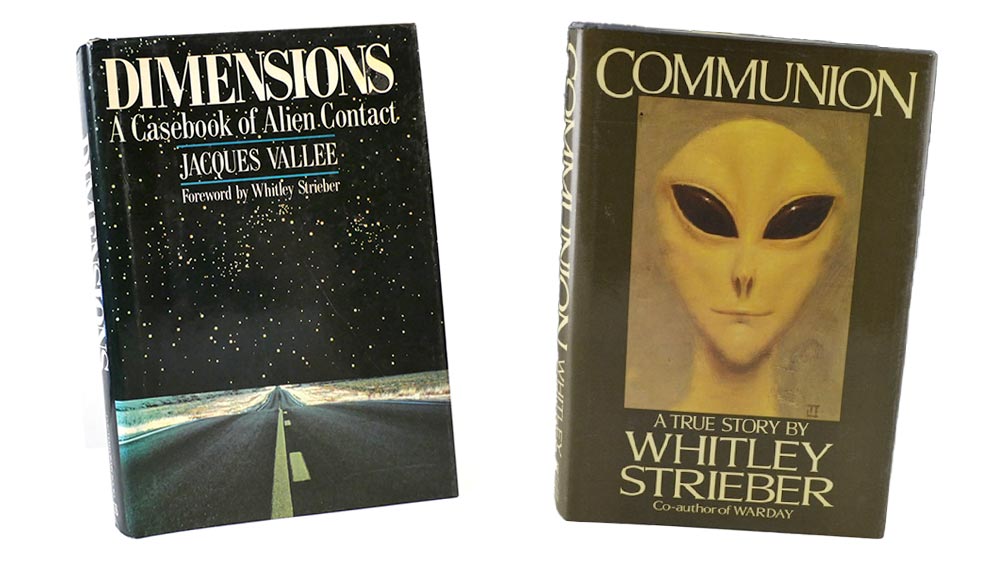
MH: In Uncertain Places I consider whether UFO experiences and ESP are closely related insofar as our psyches may be able to travel among different intersections of time or dimensions. Does that resonate with you?
WS: Well, let's put it this way: when you say ESP, that's a very broad term. Things can happen to people, people can become able to read the minds of others. I've known of that happening a few times. That people can become really strong remote viewers and see the past and the future. And they can also become unstuck in time. All that happens to close-encounter witnesses. And we don't know why exactly that's the case. But it is. And a lot of it has certainly happened to this one, of course. But it's like the relationship with the dead. As Annie, my wife, said one day after reading hundreds and hundreds of letters, she walked out of her office and said, “Whitley, this has something to do with what we call death. If there are aliens here, there is one thing about them that I think is almost certain, and that is that the dead do exist and do persist. And whatever it is here has no veil between the living and the dead and moves back and forth across that, into what we think of as the unexplored country, easily.”
MH: Have you seen the movie Nope [2022]—and how did you feel about it?
WS: Well, it was okay, I guess. There was an archness there somewhere, I guess—a self-assured certainty that this film was definitely fiction from beginning to end. [Jordan Peel] was using the stories as the basis for a fiction. And if you had asked him about what he thought of these stories, I have a feeling he would have said that they were all absurd, but it was an interesting psychological phenomenon. And then he was looking for something to see if he could make it play out on the physical level. I'm just guessing. I loved it when the UFO turned into a big bunch of sheets at the end. I thought that was really cool. I just thought that was a wonderful visual, and it had a subtle, wry humor to it. And it was just like, we're not really going to care about special effects here. That's not what we're here for. What we're talking about is the human experience and the fear of being devoured. And that's what we're exploring in this movie. We're not exploring a UFO situation at all. And that worked for me very well.
MH: This is my final question and it’s a broad one. How do you feel about the mainstreaming of the UFO thesis today? How have attitudes changed from when the Communion book and movie first appeared? Are people experiencing UFO themes through a different lens?
WS: Well, the government I think was boxed into releasing some material by Lou Elizondo, about some incidents of contacts that couldn't be explained. And it's now trying to walk that back. Because if you read the most recent stories, they're saying inane things like, “Oh, we've discovered that most of them are Chinese drones.” Oh, really? Well, I guess then that back in 1947, when General [Nathan F.] Twining wrote his memo describing in exact detail the same flight characteristics that are present in the “Tic Tac” video of 2017, there must have been Chinese drones around. Now, come on, this is just about as silly as the swamp gas story. And of course, as always, the media takes it absolutely at face value because they don't care about this subject. They think it's stupid. And the fact that Leslie Kean, Ralph Blumenthal, and Helene Cooper even got that into the New York Times is a damn miracle. But it will all be walked back, wait and see. Over the next few years, it will be walked back and discredited, and it will disappear completely. And things will go on as they are going on now. And we will move closer and closer to a situation where we're living all alone here on a planet that can no longer support us. And one thing is true: we the people may be looking for the visitors and may be willing to welcome them. But the government will not, even when it is underwater, and we are all starving. It will not.
_____________
Whitley Strieber is the author of several landmark works including Communion, The Key, The Super Natural (coauthored with Jeffrey J. Kripal), and novels The Hunger and The Wolfen. He divides his time between California and his home state of Texas.
Mitch Horowitz is a writer-in-residence at the New York Public Library and a PEN Award-winning historian whose books include Occult America, Daydream Believer, and Uncertain Places. Twitter @MitchHorowitz | Instagram @MitchHorowitz23
“Watch the Skies: Ufology on the Screen,” presented by Screen Slate, continues through November 15 at Anthology Film Archives.
